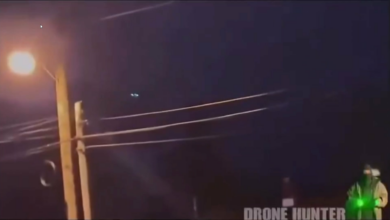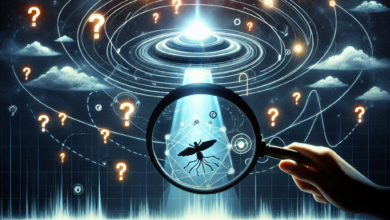Exploring Part Seven of the George H. W. Bush UFO/UAP Legacy: How Prescott Bush, Skull and Bones, and Bohemian Grove Shaped Power Dynamics and the Manhattan Project

Exploring the Bush Family Legacy: UFOs, Power, and Historical Intrigue
If you’ve been following the captivating journey uncovering the connection between George H. W. Bush, his family, and the enigmatic world of UFOs and Unidentified Aerial Phenomena (UAP), you’re not alone. This saga stretches back over a century, intertwining with pivotal moments in American history, including the aftermath of slavery and the dawn of the Industrial Revolution. The likes of Luis Elizondo, Chris Mellon, David Grusch, and others have emerged as key figures in this narrative, aiming to reconcile our understanding of history while preparing us for a future where we can greet "our friends from out of town"—potential extraterrestrial visitors—on different terms.
For those who crave a deeper dive, the journey is meticulously chronicled in a series of parts:
- Part 1: The UFO Crash/Retrieval Story: A Major Corruption Case
- Part 2: History of UFO/UAP Crash Retrievals
- Part 3: The Consolidation of Power via Big Oil and the CIA
- … and more!
As we trace back the footprints of the Bush family, we find Prescott Bush—George H. W. Bush’s father—at the helm of significant historical events. His legal career intertwined with figures like Allen Dulles, leading counsel for the infamous Business Plot in 1933, which sought to overthrow President Franklin D. Roosevelt. The failed coup paved the way for Prescott and his associates to amass wealth, previously achieved by financing the Nazis and their regimes during World War II.
The curious tale extends to other historical elements, such as the recovery of UFO crash sites, linking to the Magenta incident in Italy in 1933, and how these events played into the geopolitical landscape of the time.
In the wake of these happenings, Prescott’s influence persisted, especially through his association with the Yale secret society, Skull and Bones. Notorious for its elitism, the society has been embroiled in various controversies, including allegations of grave desecration linked to the legendary Native American warrior, Geronimo. In 2009, a significant lawsuit brought forth by Geronimo’s descendants sought to reclaim his remains, which they alleged Skull and Bones had unlawfully possessed since 1918.
The lawsuit gained traction after being widely reported by major news outlets, including The New York Times, NPR, and CNN, adding another layer to the Bush family’s already complex legacy. Although the case was ultimately dismissed, it raised questions about the intersection of power, privilege, and historical legacy.
As the narrative unfolds, the examination of George H. W. Bush’s connections to covert operations, the CIA, and international relations during his era brings to light a lineage linked to strategic political maneuvering, vast wealth accumulation, and even nefarious dealings with the Nazi regime.
The Bigger Picture
The influence of the Bush family extends beyond individual plots and incidents. It weaves into a broader tapestry showcasing how elite families shaped U.S. policy, maintained secrecy around advanced technologies, and influenced global politics through organizations like the Bohemian Grove—a gathering famous for discussions around the Manhattan Project and other covert government operations.
In exploring these links, we uncover unsettling truths about wealth, power, and the lengths to which powerful families have gone to maintain their status, including funding wars and profiting from crises. As we peer into the past, it becomes apparent that the legacy of the Bush family is as intricate as it is contentious, urging us to question how these historical narratives continue to echo into the present.
With numerous pieces of this ongoing story still left to unravel, the implications are sobering and worthy of the public’s scrutiny. Keep an eye on the series as it progresses, illuminating truths about power, extraterrestrial potential, and how our understanding of history impacts our future.




